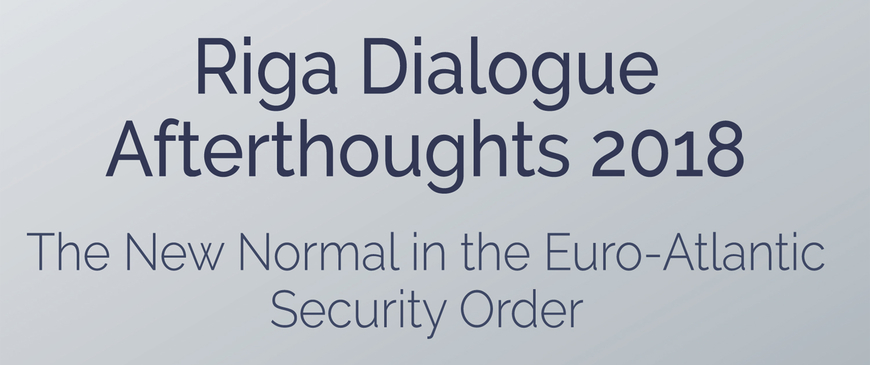
Predictable unpredictability: The future of euro-atlantic security?
A participant in this year’s Riga Dialogue began his presentation by saying that Russia was now more predictable than the US or the EU. It was designed to be provocative, but it was an accurate reflection of reality.
Unpredictability has become an important risk factor in the Euro-Atlantic area. Two of the main actors, Russia and the US, are actively encouraging instability in the third, Europe. The EU and European members of NATO are repeatedly knocked off course by unpredictable events (or events that they have failed to predict).
In Russia, Vladimir Putin has been in power, as president or prime minister, since 1999. In May 2018 he was sworn in for what should be his fourth and final term as president, ending in 2024. Yet most Russian commentators expect Putin to remain in charge of Russia, whatever his formal constitutional role, beyond that date. Russian domestic politicsunder Putin has become predictable to the point of stagnation. Western commentators who predicted that Putin might appoint a new prime minister, or at least make a start on much-needed structural economic reform, have so far been proved wrong. Not for the first time, when faced with the possibility of domestic instability linked to reform, Putin seems to be backing away: in June the government announced an increase to the pension age for both men and women—an essential change in view of Russia’s demographic and economic situation—but on 20 July Putin said that there was no final decision, and that he did not like the options presented to him.
Full chapter below in PDF.
